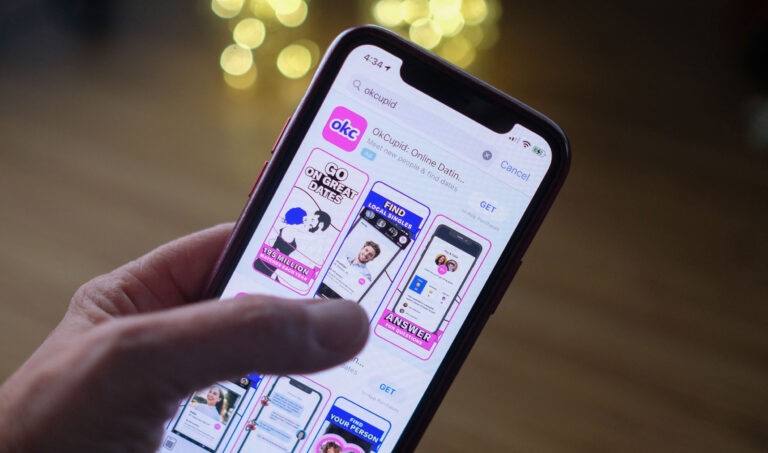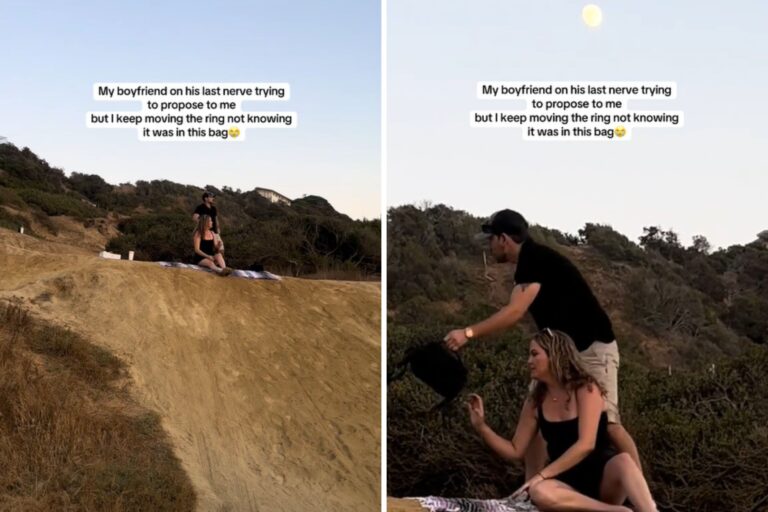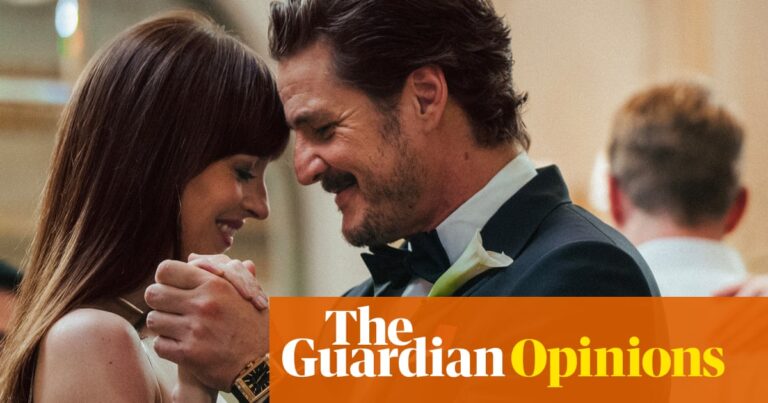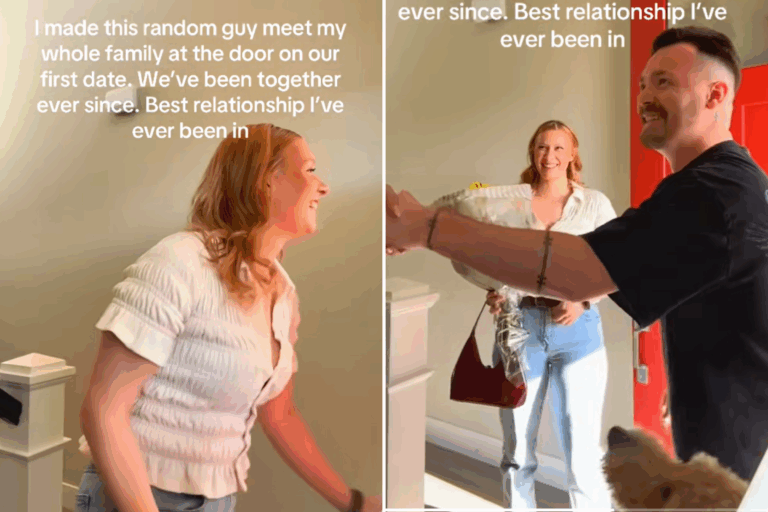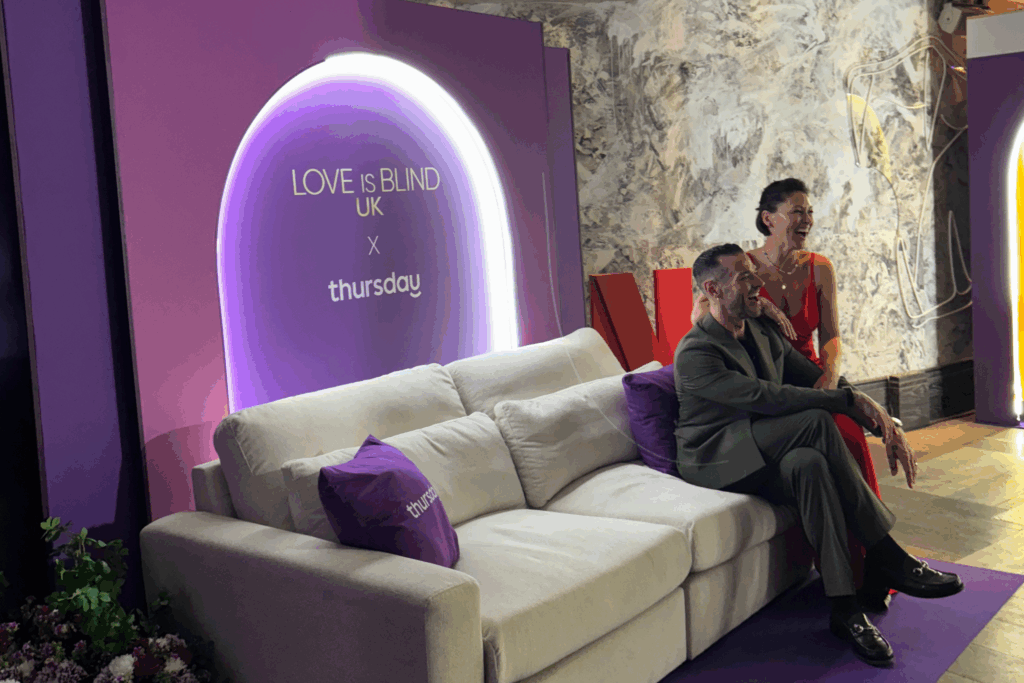
Friends Tolu and Ife are both 27, live in the UK, and are Love Is Blind fans. They’re also both single, which is what brings them to a dimly lit bar in the bustling centre of London to test the real-life version of Netflix’s flagship dating “experiment” show ahead of season 2 of the UK version.
Outside the bar, a line stretches onto the streets of Soho, the iconic central district of the English capital, with many voicing the same frustration: fatigue with the current dating game.
“I think the worst part about dating right now is the lack of commitment. I think everybody’s a bit scared these days,” said Tolu, a learning development coach from Essex.
Love Is Blind offers an alternative. The format sees around 20 contestants separated by gender into living quarters for 10 days during which their sole focus is to date the other contestants without ever seeing them, with the goal of getting engaged and progressing to the next stage of the show. The engaged couples go on a trip, then live together in their home towns, meet friends and family, and ultimately decide whether or not to go through with a wedding, determining whether—as the hosts frequently remind viewers—love really is truly blind.
Tolu’s friend, Ife, a solutions architect at a cloud tech company, based in North West London, was thrilled at the chance to step into the real-life pods as part of the promotional event hosted by Netflix in collaboration with Thursday Dating, a UK-based app that organizes weekly singles events.
“Love is Blind is my dream reality TV show to be on. I feel like it’s a very good style of dating,” she said.
But, much like in the show, which has only seen a few couples remain married, the event proved that when it comes to dating, there is no one-size-fits-all solution—even at a time when singles are more disenchanted with dating apps than ever.
Inside the Real-Life Pods
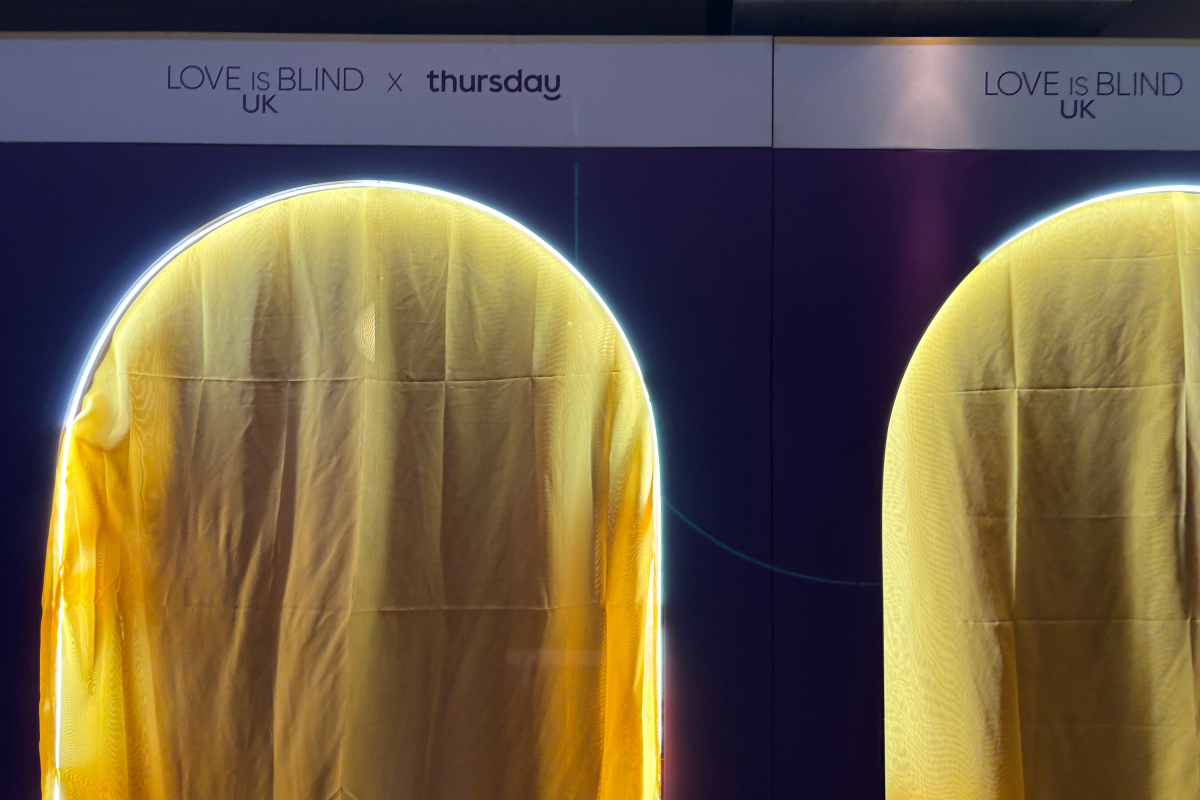
Lydia Patrick/Lydia Patrick
Like in the show, the pods—small booths separated by a curtain—forced participants to rely on conversation alone to gauge whether a spark could form. Prompt cards encouraged deeper discussion, and after each session, participants pressed a red or green button to indicate if they wanted to meet their date face-to-face.
Both Tolu and Ife said they’ve been making an active effort to attend more in-person dating events, believing it cuts out the nonsense and is a foolproof way of immediately ascertaining whether there is a connection.
It appears they are part of a wider shift as more people are stepping away from swiping.
A Forbes-backed survey from May 2025 found 79% of Gen Zers who had used dating apps in the past year experienced “dating app burnout,” and Eventbrite reported over 1.5 million searches for “dating” and “singles events” in just one year.
Tami, 30, from Camden, who works in finance, was trying out the pods after ending a long-term relationship last year.
“I’m not on dating apps, so I prefer to meet people in real life and chat to see if we get on,” Tami told Newsweek. “Every time I’ve been to one of these events before, we always meet really nice people, and you never know where it can go. You’ll know straight away whether you get on with someone, so you’re not wasting your time small-talking back and forth and trying to arrange a date.”

Lydia Patrick/Lydia Patrick
Kajal, 29, and Cameron, 26, are also disillusioned with dating apps, which led them to try the pods.
“It’s empty. There’s nothing in it. On dating apps, there’s no soul in it. These are photos, these are words, but even when you talk to them, it’s an incomplete form of communication. There’s nothing really coming back and forth,” Cameron told Newsweek.
“I’ve been single since December, and I’ve dated two people since. Honestly, I feel like they tend to end not respectfully, and I don’t feel like I was treated the way that I deserve through apps,” added Kajal, a support engineer.
Kajal entered the pod and caught a quick glimpse of Cameron’s black size 11 sneakers under the curtain—something she “approved immediately.”
“The pod experience felt quite natural to me. I felt like it had quite a calming energy,” she told Newsweek.
The two began with general conversation before moving on to the prompt cards, which sparked deeper discussion.
One card read: “Would you go to bed angry?”
Cameron said he would, preferring to wake up emotionally regulated and with a fresh perspective. Kajal preferred resolving issues before bed—though she respected her partner needing time to process.
Despite their different approaches, the discussion helped them find common ground, and they plan to keep talking and see where their initial spark might lead.
Does the Experiment Work?
Love Is Blind premiered in February 2020 on Netflix, and instantly caused a stir. As COVID-19 led to shutdowns across the world shortly after, more people were tuning in to easy-watching TV, and the first season of the show became one of the streaming platform’s biggest successes of the year.
In the years since, multiple splin-offs have aired in different territories, including Brazil, Japan, and Sweden. In 2024, season 1 of Love Is Blind UK produced drama, scandal, and memes—but also real love stories.
Among the romantic successes: Benaiah and Nicole, who are still married, and Jasmine and Bobby, who are expecting a baby.
For others, the pods were transformative in different ways. Demi Santana Brown, 32, from Southeast London, sees her season as a success—even though it didn’t end in marriage.
“Season 1 was a self-love journey, even though I was there to find a husband and fall in love. I did connect with someone, but we didn’t get married. The lesson I learned was how to love yourself. It was beautiful to be in that experience and learn as I went along. It was an experience I didn’t know I needed, and I’m forever grateful for it,” Demi told Newsweek.
After the experiment, she took a year of celibacy before returning to the “cold streets” of dating—this time with clearer intentions.
“The physical side of things is not a priority. It’s like third on the list. I want to know someone for who they are because, at the end of the day, when the lights go off at night, you’re not going to see that person. It’s the person you’re having deep conversations with. You want an emotional connection and to feel safe.”
As for the singles looking for love in the London (untelevised) pods, the experience was mixed.
For Tami, the pod date was unsuccessful, as she found the conversation one-sided.
Daniel, 32, also didn’t find love, likening the experience to “sparking conversation in a sauna.”
“Once I exited the pod, I felt a bit more air, so I felt less lightheaded. It wasn’t love at first sight, unfortunately, but she seemed like a nice person.”
But Kajal and Cameron were positive about the experience. “I very much encourage in-person events because it gives you the opportunity to actually get to know someone’s energy and their charisma,” Kajal told Newsweek.
She added, “Someone might not be attractive in a picture, but their confidence, the way that they’re attracted to you, their hobbies, and interests in person, and having that one-to-one connection and feeling that vibe is something you don’t really get from an app. Also, when you come to these events, you know that person cares enough to show up in person.”
Love Is Blind UK season 2 premiered Wednesday, August 13, on Netflix, following the journeys of more single participants taking an unconventional path to lasting love.
